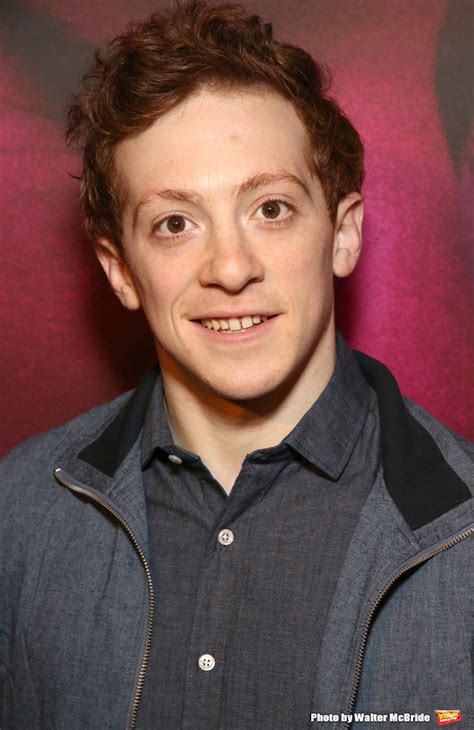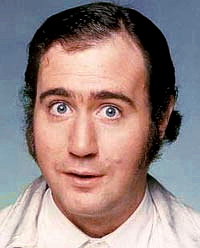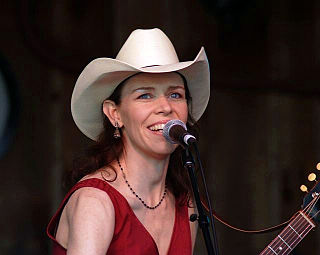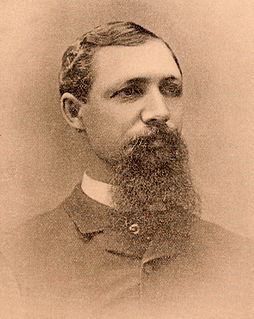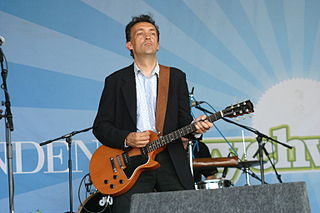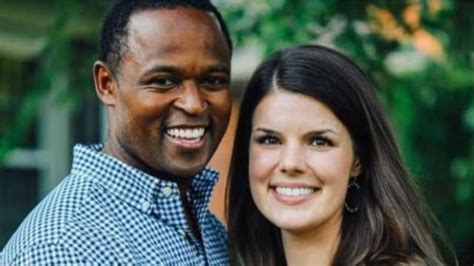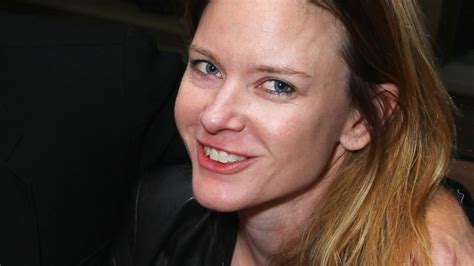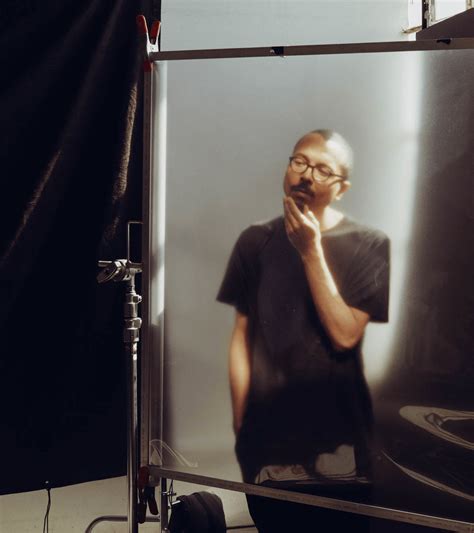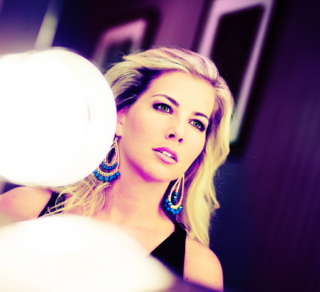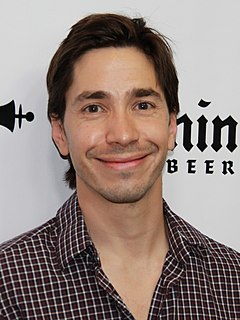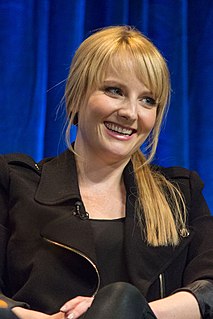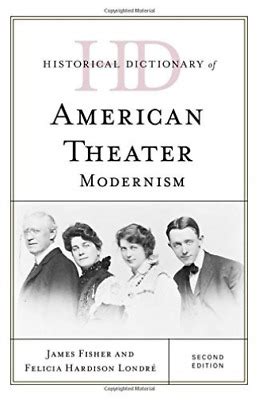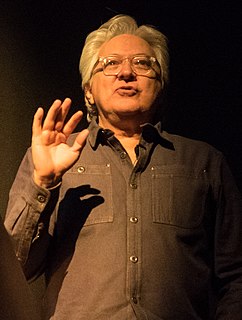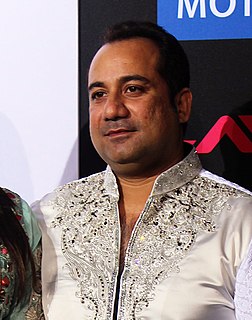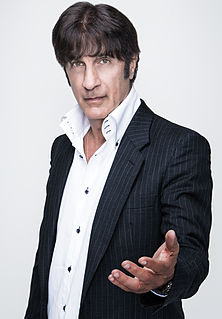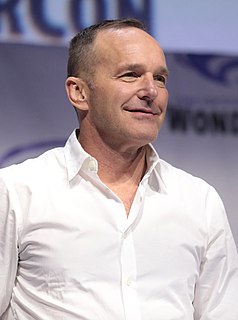Top 1200 Narrative Voice Quotes & Sayings - Page 4
Explore popular Narrative Voice quotes.
Last updated on December 19, 2024.
Y'know, I think, inherently, when you hear something like a teenage narrative come into play, even the idea that it's being called 'teenage' is a notion that it's being reduced to a problem that's not quite adult. That's a problematic thing to say about a narrative that could actually be dangerous, could be hurtful, could be upsetting.
When the kirtan is harmonious with so many people, it’s a tumultuous beautiful sound. We can’t hear just one voice during the chorus; or rather we do hear one voice. But that one voice is actually the sound of everyone’s voice in harmony. That’s our offering to God. And why is it so pleasing to the Lord? Because we are all cooperating for a higher purpose. We are all united for the pleasure of the center, for the pleasure of Krishna, in spite of all our differences.
I definitely see the voice as an instrument: It makes great drums, great synth pads, great everything. Vocals can be so many things, like, "Hey, I'm Michael Jackson, and this is my iconic voice," or a choir of people sounding like Mozart's Requiem. Mariah Carey is my favorite singer because her voice sounds utterly groundless. It's not even a human voice; it almost sounds mechanical.
Many couples, many people, are not living with real human beings, but with their ghosts. Who has not followed for years the spell of a particular tone of voice, from voice to voice, as the fetishist follows a beautiful foot, scarcely seeing the woman herself? A voice, a mouth, an eye, all stemming from the original fountain of our first desire, directing it, enslaving us, until we choose to unravel the fatal web and free ourselves.
I try to please people, to give them a good time, but I refuse to make my act conform to traditional show-biz standards of entertainment. There's a little voice that says, 'Oh, no, you can't do that, that's breaking all the rules.' That's the voice of show business. Then this other little voice says, 'Try it.' And most of the time, when the voice comes on and says, 'No,' that's the time it works.
From a distance the world looks blue and green,
and the snow-capped mountains white.
From a distance the ocean meets the stream,
and the eagle takes to flight.
From a distance, there is harmony,
and it echoes through the land.
It's the voice of hope, it's the voice of peace,
it's the voice of every man
Any narrative, whether it's fiction or not, you have to approach it as though it really happened to you. I think that's the only way to get inside the characters and make the narrative work. It's a storytelling tradition, and I think to come off as genuine then you have to really approach it that way.
A lot of artists I like end up being queer. Or maybe it's a subconscious thing that you can identify of, like, 'Oh this person understands the nuances of the romantic narrative of a queer person, or the social narrative of a queer person.' And then you discover, lo and behold that they are a queer person.
While Jesus was at Jerusalem there came a voice from heaven. For what purpose was the voice sent? For the sake of those who stood by. "Jesus answered and said, This voice came not because of me, but for your sakes" (John xii, 30). Of what benefit was the voice when those who heard it were unable to distinguish it from thunder? "The people therefore, that stood by and heard it, said that it thundered" (29).
In some traditional African dances, people wear masks in order to become the embodiments of particular spirits. I have heard that they often cover the mouth-piece with spider webs or something that resonates, so that their voice gets distorted, ceasing to be the voice of a human and becoming representative of a voice that comes from another world.
Memoir is trustworthy and its truth assured when it seeks the relation of self to time, the piecing of the shards of personal experience into the starscape of history's night. The materials of memoir are humble, fugitive, a cottage knitting industry seeking narrative truth across the crevasse of time as autobiography folds itself into the vast, fluid essay that is history. A single voice singing its aria in a corner of the crowded world.
The only way you can find it is through being alone with your thoughts at sufficiently long intervals to give that inner voice within you a chance to cry out in distinguishable language for you. 'Here I am within you.' That is the silent voice, the voice of nature, which speaks to everyone who will listen.
Write like you write, like you can't help but write, and your voice will become yours and yours alone. It'll take time but it'll happen as long as you let it. Own your voice, for your voice is your own. Once you know where your voice lives, you no longer have to worry so much about being derivative.
What has praise and fame to do with poetry? Was not writing poetry a secret transaction, a voice answering a voice? So that all this chatter and praise, and blame and meeting people who admired one and meeting people who did not admire one was as ill suited as could be to the thing itself- a voice answering a voice.
We're always being told 'find your voice.' When I was younger, I never really knew what this meant. I used to worry a lot about voice, wondering if I had my own. But now I realize that the only way to find your voice is to use it. It's hardwired, built into you. Talk about the things you love. Your voice will follow.
There came one and knocked at the door of the Beloved. And a voice answered and said, 'Who is there?' The lover replied, 'It is I.' 'Go hence,' returned the voice; 'there is no room within for thee and me.' Then came the lover a second time and knocked and again the voice demanded, 'Who is there?' He answered, 'It is thou.' 'Enter,' said the voice, 'for I am within.
While the Passover narrative [in Exodus] energizes Israel's imagination toward justice, Israel's hard work of implementation of that imaginative scenario was done at Mt. Sinai. . . . Moses' difficult work at Sinai is to transform the narrative vision of the Exodus into a sustainable social practice that has institutional staying-power, credibility, and authority.
Living "in" a story, being part of a narrative, is much more satisfying than living without one. I don't always know what narrative it is, because I'm living my life and not always reflecting on it, but as I edit these pages I am aware that I have an urge to see my sometimes random wandering as having a plot, a purpose guided by some underlying story.
Now, we're used to thinking of communism as being once-upon-a-time-all-things-were-owned-in-common, maybe-someday-this-will-come-again. And people agree that there is a sort of epic narrative going on here. I think we should just throw this narrative out, it's irrelevant anyway, and who cares who owns things? I don't. You know, we all own the White House. So what? I still can't go in, right?
I have a theory that, for people of color or others who have been cut out of the master narrative, just telling your personal survival tale, your story, is civic engagement. It is a kind of political performance and is really crucial in that storytelling is how the writers connect with people and change. It's how we collect and add to and complicate the master narrative.
To read fiction means to play a game by which we give sense to the immensity of things that happened, are happening, or will happen in the actual world. By reading narrative, we escape the anxiety that attacks us when we try to say something true about the world. This is the consoling function of narrative — the reason people tell stories, and have told stories from the beginning of time.
When Marvel put together Ultimate Spider-Man and someone came up with the idea of having Principal Coulson, they said, "Do you want to do the voice?" I thought, "I have to do the voice!" Because I have a daughter and we watch some cartoons, I couldn't bear the idea of tuning in and hearing somebody else's voice.
I just thought someone has to figure out how to break through that barrier and create a narrative for a black super hero story to unfold at the same scale as something like Star Wars. Rythm Mastr is about producing a narrative of a hero engaged in a struggle as complicated as those other stories. The catalyst for it was the beginning of the demolition of public housing in Chicago.
The unique, compelling, and earnest voice that characterizes Jedediah’s weekly columns comes alive with increased vitality in OUTNUMBERED. She shatters leftist stereotypes about conservatives and exposes the myth of liberal tolerance as she relates her interactions with liberals in everyday life. This narrative, interlaced with commentary and impressions, gives us insight into liberals that books merely about abstract principles do not capture. A fascinating read.
I am interested in levels of brain discourse. How articulate are the voices in your head? You know, there's a different voice for the phone, and a different voice if you're talking in bed. When you're starting off with a narrator, it's interesting to think, where is their voice coming from, what part of their brain?




